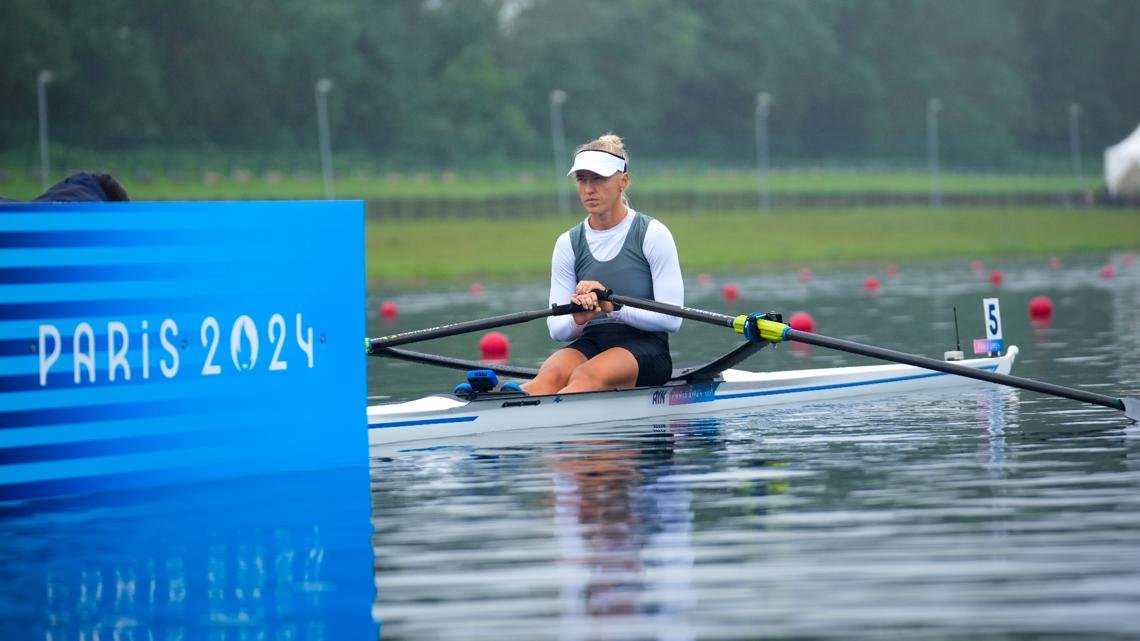nation-world
Russia to Miss Olympic Broadcasts for the First Time in Nearly Four Decades

Only 15 Russian citizens will be competing in the Paris Olympics, and they will not be representing Russia.
ESTONIA — Viewing the Paris Olympics will be challenging for most Russians, and according to its media, it may not be worth the effort.
Only 15 Russian citizens will be competing, but will do so as neutrals due to the ban on national teams from Russia and Belarus, attributed to the war in Ukraine.
Historically, Russians have been fervent Olympics fans, dating back to the Soviet Union’s era of dominance. However, with a minimal presence in the games, Russia’s state TV channels have chosen not to broadcast any events. Those eager to watch might need to use virtual private networks to bypass blocks on certain channels.
The last instance of the Olympics not being aired in Russia was in 1984, when the Soviet Union boycotted the Summer Olympics in Los Angeles.
State news channel Rossiya 24 provided a brief report from Paris on the opening ceremony, showing scenes of dancing and colored smoke over the Seine River. News agencies Tass and RIA-Novosti also offered only cursory mentions of the ceremony, focusing mainly on how rain dispersed spectators.
While newspapers have not entirely ignored the Olympics, their coverage has been overwhelmingly negative. Reports have highlighted crime in Paris, numerous barricades, and food shortages experienced by athletes.
Sovietsky Sport’s Alexander Shulgin remarked on Thursday, “The Paris Olympics is an amazing event, if not to say a phenomenon: Competitions in individual disciplines have just started, the opening ceremony has not even taken place, and so many scandals have already accumulated that they will be enough for several Games.”
Sport-Ekspress quoted Irina Rodnina, a three-time figure skating gold medalist and now a member of Russia’s parliament, stating, “I think that this Olympics will go down in history with a completely negative result.”
Schadenfreude is evident in many articles. Andrei Tupikov of Sovietsky Sport critiqued the barriers in Paris, suggesting that Europe was adopting practices once criticized in Russia.
Shulgin, still affected by criticisms of the 2014 Winter Olympics in Sochi, hinted at potential mishaps in Paris similar to the Sochi Olympic rings malfunction.
“If the ring did not open in Sochi, it’s scary to imagine what could happen in Paris,” he wrote, though no such disaster occurred.
Foreign Ministry spokesperson Maria Zakharova compared Paris unfavorably to Sochi, stating, “The Western media did not like dogs at the Sochi Games. In Paris, they were smiled at by the rats that flooded the city streets.” She also called the opening ceremony “ridiculous.”
The media commentary extended to deeper ethical and philosophical debates, such as the dilemma of supporting the Russian athletes competing under a neutral banner. To participate, these athletes must not have shown support for Russia’s invasion of Ukraine.
Sport-Ekspress commentator Oleg Shamonaev analyzed the term “Individual Neutral Athlete,” ultimately concluding, “The 15 ‘neutrals’ with a Russian passport who did not change their flag, despite 2 1/2 years of sanctions … are worthy not of condemnation but of respect.”
“It’s stupid to pretend we don’t care about what happens to them at the 2024 Games,” he emphasized.


















